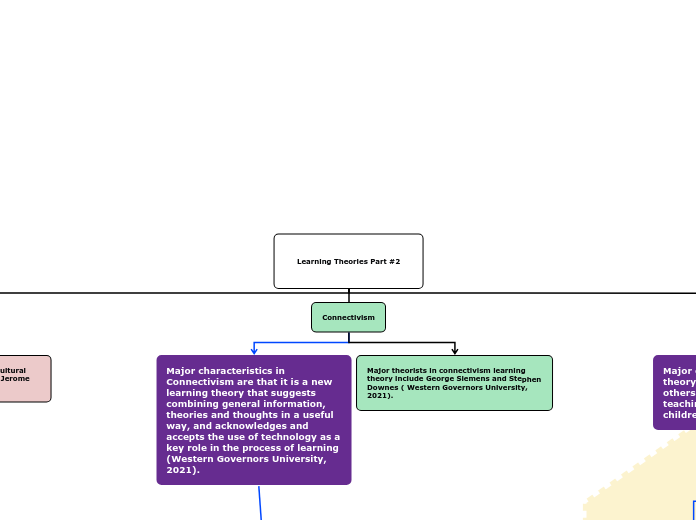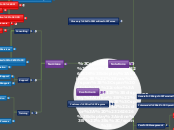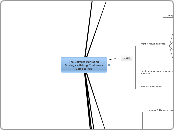Learning Theories Part #2
Adult Learning Theory
Major theorist in adult learning theory include Malcom Knowles ( Nelson, 2021).
Major characteristics in this theory and how it differs from the others is that, it focuses on teaching adults (andragogy), not children ( Nelson, 2021).
The role of memory is dependent on internal motivations rather than external, and being able to use learned knowledge to real life ( Nelson, 2021).
Types of learning in adult learning include seven principles: Self-directed, Transformational, Experiential, Mentorship, Orientation of Learning, Motivation, and Readiness Learn ( Nelson, 2021).
Learning occurs when the adult learner is able to use their prior knowledge, skills and experiences to new environments, as well as being able to apply them in real life ( Nelson, 2021).
Connectivism
Major theorists in connectivism learning theory include George Siemens and Stephen Downes ( Western Governors University, 2021).
Major characteristics in Connectivism are that it is a new learning theory that suggests combining general information, theories and thoughts in a useful way, and acknowledges and accepts the use of technology as a key role in the process of learning (Western Governors University, 2021).
The role of memory in connectivism defers from other theories in the simply fact that it permits the learner to use technology to support in learning activities ( Western Governors University, 2021).
Types of learning can rely on technology to support further learning in the classroom. For example, providing more opportunities to use fun and engaging game applications, social media, and various reliable online resources to support learners and relay information ( Western Governors University, 2021).
Learning occurs according to the network in which the learner belongs to, and when connections are made, the learner builds knowledge ( Starkey, 2012).
Add your text
Sociocultural
Major theorists involved in sociocultural learning theory are Lev Vygotsky, Jerome Bruner, and Barbara Rogoff.
Sociocultural major characteristics include the idea that a learners cognitive learning ability and language can be influenced by their social interactions with others and their cultural experience, and not so much the individual development (Wang, 2007).
The role of memory is to use prior knowledge in order to form and update experiences, to then be able to use to navigate ( Spreng, 2013).
Types of learning include helping create productive interactions and activities where collaboration can occur and the learner is building their skills and strategies beyond their level. For example, scaffolding to support a learner with a support ( Polly, 2018).
Learning occurs when the learner is supported and interacts with a more knowledgeable individual using the Zone of Proximal Development ( Saunders, 2020).









